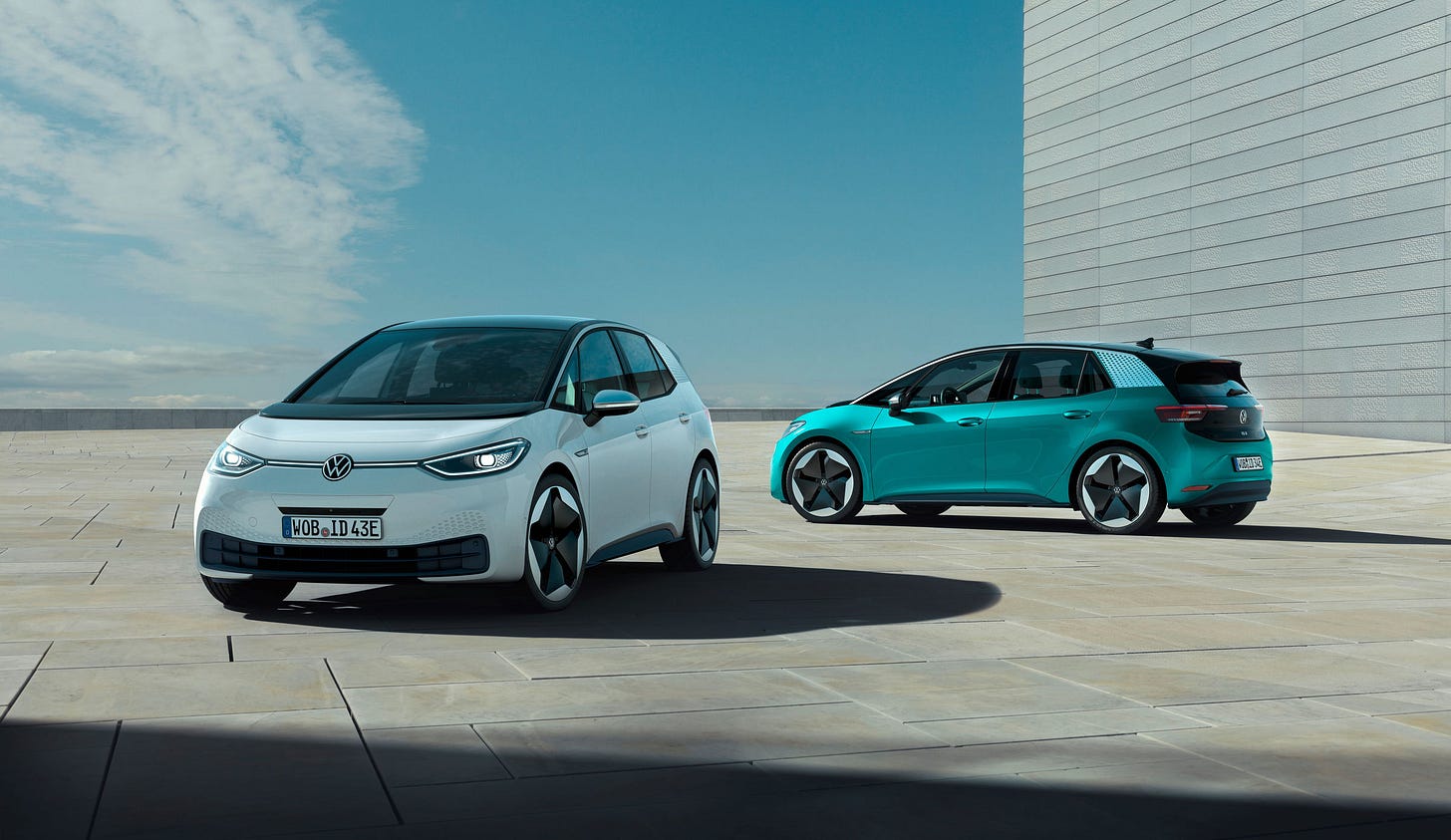News briefs: Affordable EVs, green hydrogen in homes
Plus, Asian private equity firms focus on environmental risks in M&A, and more
Tesla, VW to compete with new affordable electric cars
Tesla (TSLA) and Volkswagen have both said they are working on affordable electric vehicle lines that will start in the $25,000 to $30,000 range. A report in Electrek looks at how the electric car market could soon be accessible to more people. The report notes that in surveys about going electric, the price of new electric cars is a top concern. “When it comes to the luxury segments, many electric vehicles have caught up in price and performance with their fossil fuel-powered counterparts. However, this becomes less true down market with some exceptions,” the report notes, adding that iImprovements in battery technology are contributing to better performance and longer ranges at a lower price point, opening EV ownership to more people.
Scottish homes to use 100% green hydrogen
About 300 homes in Fife, Scotland will be fitted with free boilers, heaters and cooking appliances using 100% green hydrogen as part of a new trial that could help households across the country replace fossil fuel gas, The Guardian reports. Homeowners will receive grass gas starting in 2022 at no extra charge, and as many as 1,000 homes could be included if the first phase of the trial is completed successfully, according to the report. The trial has the backing of the energy regulator, Ofgem and is part of a funding competition supporting innovation to help prepare Britain’s energy grids for a low-carbon future. It’s related to a project from National Grid to carry out “offline” hydrogen trials, using old gas grid pipes, to test the safety of transporting hydrogen gas across the country.
Asian PE firms placing more emphasis on environmental risk in M&A
More private equity firms in Asia are placing a bigger emphasis on environmental risk in assessing mergers and acquisitions as climate-conscious investors are ratcheting up pressure while major governments in the region are accelerating their decarbonization efforts, Yuzo Yamaguchi writes for S&P Global Market Intelligence. “As China, Japan and South Korea recently pledged to go carbon neutral over the next three to four decades, and deal activity in the region's private equity sector has increased in recent years, experts say now is the window for Asian investors of unlisted companies or assets to catch up with other regions in responsible investing to minimize post-deal reputational risk,” Yamaguchi says.
Red Cross disasters report: Most vulnerable get the least help
The analysis presented in the Red Cross World Disasters Report 2020 shows that none of the 20 countries most vulnerable to climate change and to climate- and weather-related disasters were among the 20 highest per person recipients of climate change adaptation funding. Notably, none of the largest five recipients are fragile contexts, the report says, adding that an additional challenge is ensuring that funding reaches the most at-risk people within these countries. Many communities may be particularly vulnerable to climate-related risks, from people affected by conflict whose capacity to manage shocks is already strained, to migrants and displaced people who may struggle to access the services and assistance they need, to urban poor people and other marginalized communities. The issues are not only financial. “Fundamentally, we need to ensure that we are implementing the intertwined commitments in the Sustainable Development Goals (SDGs), the Paris Agreement and the Sendai Framework for Disaster Risk Reduction 2015–2030 in a joined-up way. And we must do a much better job of ensuring that all actors — including governments, donors, the humanitarian, development, climate and environmental sectors — prioritize support for the people, communities and countries most at risk.” Read the full report.

